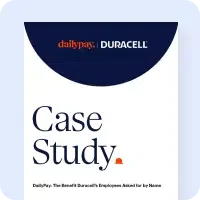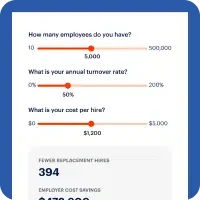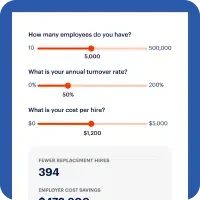Critical to the success of any well-known HCM or payroll system solution is seeing how the integration of new processes and procedures goes for the client company. Often overlooked is the role that an approved business and/or consultants, brought in to make that new system happen, play in determining whether the transition is a success. Issues with getting this part right were discussed in a recent Source by DailyPay podcast.
Jennifer Wise founded Wise Consulting, a company that helps employers migrate from no system to a system or from one system to another and supports businesses that have already transitioned their HCM or payroll platforms. She was inspired to start her business, which she now has turned over to her employees to own and manage, because clients “a lot of times needed support that was really beyond the capability that they had internally or what the vendor could offer to them.”
She noted: “One of the things about an HCM solution is that it’s extremely visible across the organization. So it impacts absolutely every single employee.”
Red Flags
The role of the vendor needs to be made clear, and there often is a lot of work required by the client, Wise said. The vendor generally “is just really there to guide, to provide information … and then to handle some of the more technical aspects,” she said. “The consultants are there to make sure that they’re filling in these gaps.”
In some instances, a red flag appears “when the client does not take the time to analyze their requirements against the capabilities of the software itself,” she said. This can result in a failed attempt to convert the existing data into a new system that simply is not structured in the same way.
“It could be a self-service workflow. It could be security. It could be about granting permissions.” This impacts reporting and process workflow, Wise said.
Second, a lack of engagement or commitment on the part of the client’s staff can cause big problems. “If they still have their day jobs, and they’re trying to fit this in, many times that’s another of our big red flags.” The implementers, like those in Wise’s firm, may send somebody to be the interim payroll manager so the people who are going to be living with the system post-implementation can focus on that transition, Wise said.
Adopting New Technology
“Sometimes, as consultants, we’ve found that someone on the project team has recognized a deficiency in the current system, or has recognized roadblocks, or wants to push the organization forward to take more advantage of technology, to adopt some of the new capabilities or features. On-demand pay is certainly one where there’s resistance a lot of times.”
“I honestly have to say, when I first heard about on-demand pay, and as specialists in payroll, the big thing was, ‘Well, how the heck is that going to work?’ I mean, there are taxes, there are deductions, there are garnishments, there’s remittance,” Wise said. “There’s sending the money to all these places, like, how is this ever going to work? That’ll never work. Well, lo and behold, all those obstacles were addressed.”
And this is a part of what Wise said employers need to emphasize in the post-pandemic work environment: employee satisfaction. “When you look at employee satisfaction across the board, having control and feeling that people are trusted is huge, a huge part of satisfaction.”
With on-demand pay, “people do, in fact, want to get sometimes, every single day, part of their pay. Sometimes they want to wait, save it all up. It depends. Everybody is unique.” Providing access to pay on-demand “means that we trust the employee to make the best decision for themselves and their family,” Wise said. “The common denominator is listening to employees and respecting them.”
You can access the full podcast and subscribe to other Source by DailyPay episodes here.
DailyPay is building technology and the mindset to reimagine the way money moves, from the moment work starts. DailyPay’s pay experience goes beyond compliance and flexibility. Through the DailyPay Pay BalanceTM, the technology seamlessly integrates with a variety of pay systems to continuously and accurately track earnings, makes them accessible and accounts for the amounts, so the payroll team doesn’t have to take any action.
For additional resources on this topic, see:
- How Full-Service On-Demand Pay Works for Our Payroll Team
- America Is Reopening. Solutions for Recruiting and Retaining Talent
- White-Label On-Demand Pay for HCM and Payroll Companies is Now Possible With DailyPay ExtendPX
- Earned Wage Access Guide
- Payroll’s Role is Changing: Here’s How New Technology Will Change it More
- Instant Wage Access Apps and How They Work













